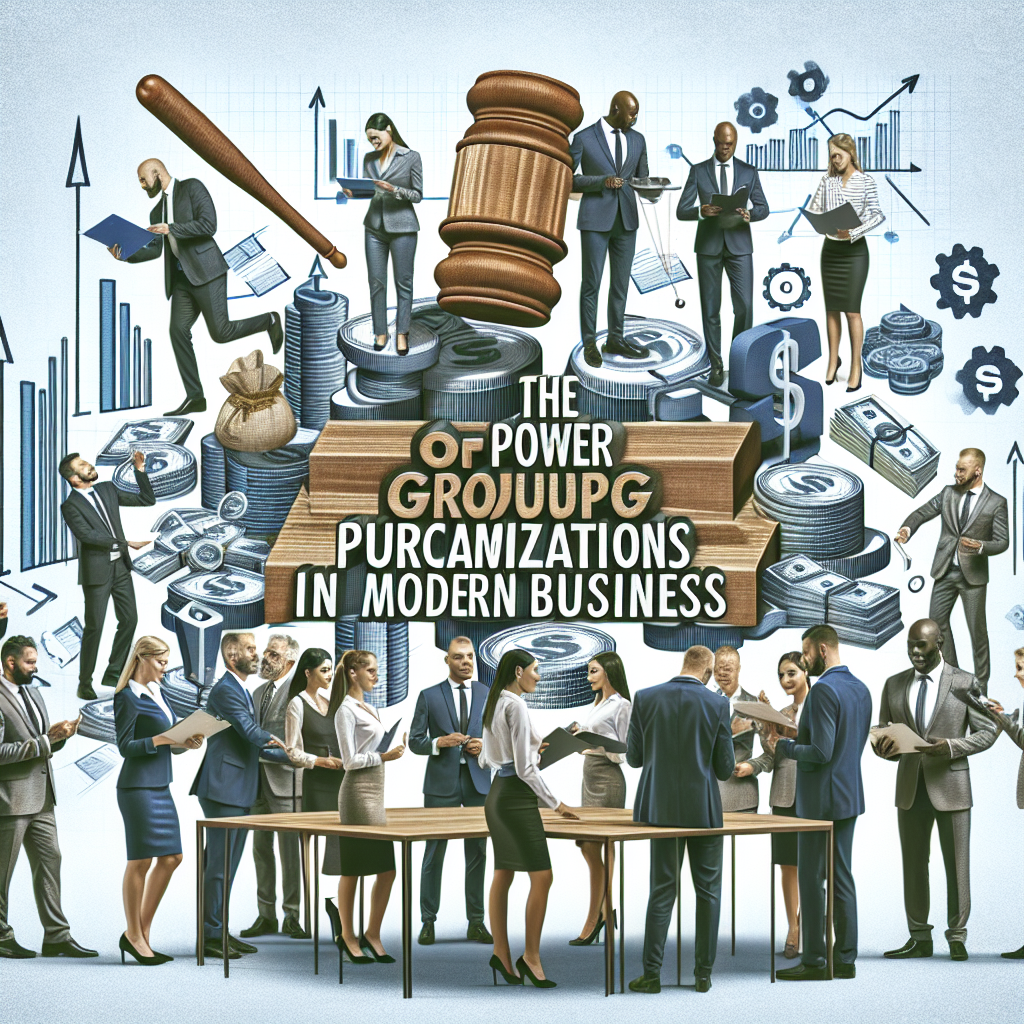Introduction
Artificial intelligence in sourcing is changing procurement processes in various industries. As organizations feel more pressure to optimize their supply chains, AI technologies are becoming essential tools for improving efficiency and decision-making.
This article will explore the implications of artificial intelligence in sourcing, including its benefits, challenges, and future trends.
Understanding Artificial Intelligence in Sourcing
Artificial Intelligence (AI) refers to the simulation of human intelligence in machines programmed to think and learn. In the context of sourcing, AI technologies enhance decision-making, streamline processes, and improve overall procurement efficiency.
Key AI Technologies in Procurement
Key AI technologies relevant to procurement operations include:
- Machine Learning: This technology enables systems to learn from data patterns, making it possible to predict trends, optimize supplier selection, and manage inventory more effectively. By analyzing historical data, machine learning algorithms can identify the most suitable vendors based on criteria such as pricing, reliability, and delivery times.
- Natural Language Processing (NLP): NLP allows machines to understand and interpret human language. In sourcing, it can be utilized for analyzing supplier communications, parsing contracts, and extracting relevant information from documents. This capability enhances contract management by automating compliance monitoring and risk assessment.
The Impact of AI on Traditional Sourcing Practices
The transformation of traditional sourcing practices through these technologies is significant:
- Data-Driven Insights: AI systems provide actionable insights derived from advanced analytics techniques like spend analysis. This empowers organizations to make informed decisions based on real-time data rather than outdated spreadsheets.
- Enhanced Efficiency: Automation of repetitive tasks reduces manual workload. Procurement teams can focus on strategic activities such as entry-level procurement jobs rather than spending time on administrative tasks.
- Improved Supplier Relationships: With better vendor matching capabilities powered by AI, organizations can foster more productive relationships with suppliers. This leads to improved negotiation outcomes and long-term partnerships.
These elements illustrate how AI is reshaping sourcing methodologies in contemporary procurement landscapes.
Challenges in Integrating AI into Sourcing
However, it’s important to note that the integration of AI in sourcing does not come without its challenges:
- During times of crisis, building resilience becomes paramount.
- While exploring cost-saving measures through strategies like frugal living, understanding the true value of purchasing decisions is crucial.
- It’s essential to debunk certain myths surrounding group purchasing organizations (GPOs) as part of the broader conversation about purchasing.
Key Benefits of Leveraging AI in Sourcing Processes
Using artificial intelligence in sourcing processes offers transformative advantages that can significantly enhance procurement operations. The following benefits highlight how AI technologies facilitate improved outcomes for organizations.
1. Enhanced Decision-Making
Leveraging data-driven decisions is crucial in today’s competitive landscape. AI-driven analytics empower procurement teams to extract valuable insights from large datasets. Techniques such as spend analysis and vendor matching allow organizations to:
- Identify cost-saving opportunities.
- Optimize supplier selection based on performance metrics.
- Make informed choices that align with strategic goals.
2. Automation of Repetitive Tasks
Routine procurement tasks often consume valuable time and resources. AI automates these repetitive functions, resulting in increased efficiency across workflows. Key areas where automation shines include:
- Purchase order creation.
- Invoice processing.
- Supplier communication management.
This allows procurement professionals to focus on value-added activities rather than mundane administrative work.
3. Streamlined Contract Lifecycle Management
AI technology plays a pivotal role in enhancing contract management processes. By automating key aspects of the contract lifecycle, organizations can achieve improved compliance and risk mitigation through compliance-driven sourcing. Essential functions include:
- Contract Generation: Rapidly create contracts using templates tailored to specific needs.
- Compliance Monitoring: Ensure adherence to contractual obligations through automated alerts and reminders.
- Risk Assessment and Mitigation: Utilize predictive analytics to identify potential risks associated with vendors and contracts, facilitating proactive measures.
By integrating these AI capabilities into sourcing processes, organizations not only improve operational efficiency but also position themselves for long-term success in an increasingly complex procurement environment. The potential for enhanced decision-making, automation, and streamlined contract management empowers teams to navigate challenges effectively while maximizing value from their sourcing strategies.
Additionally, focusing on [tail spend management](https://hubzonedepot.com/tag/tail-spend-management) can further optimize procurement strategies by identifying and reducing unnecessary expenditures. Embracing GPO membership benefits can also lead to significant cost reductions and improved supplier relationships. Furthermore, staying updated with the latest trends in supplier innovation through resources like Breaking Boundaries: The Top Trends In Supplier Innovation You Need To Know can provide valuable insights for future sourcing strategies.
Implementing AI Solutions in Procurement Processes: Challenges and Strategies
Integrating AI tools into existing systems presents unique challenges. Organizations like Hubzone Depot LLC can streamline their processes by following these implementation strategies:
1. Assess Current Systems
Evaluate existing procurement workflows to identify areas where AI can enhance operational efficiency. Understanding current challenges is crucial for effective integration.
2. Define Clear Objectives
Establish specific goals that align with business objectives. These could range from reducing procurement costs to improving vendor selection accuracy.
3. Select the Right Tools
Choose AI solutions that suit the organization’s needs. Consider technologies such as machine learning for data analysis and natural language processing for contract management.
4. Build a Cross-functional Team
Assemble a team with diverse expertise, including IT, procurement, and finance. Collaboration among departments fosters comprehensive integration and addresses potential issues early on.
5. Pilot Testing
Implement a pilot program to evaluate the effectiveness of selected AI tools. This approach allows for adjustments before full-scale deployment.
6. Continuous Training and Support
Provide ongoing training for staff to ensure they are equipped to use new technologies effectively. Expert guidance during this phase is essential for smooth adoption and maximizing benefits.
Expert guidance plays a pivotal role in navigating the complexities of AI implementation. Engaging consultants or specialists can provide insights into best practices, ensuring that organizations realize the full potential of artificial intelligence in sourcing.
By addressing these challenges with robust strategies, businesses can significantly improve their procurement processes and achieve operational excellence. For instance, optimizing supplier performance is one area where AI can make a significant impact, ensuring quality and reliability in supplier relationships.
Moreover, those managing a one-person procurement function can leverage strategic solutions offered by Hubzone Depot for cost efficiency and better supplier management.
In addition, understanding the benefits of private sector group purchasing can further enhance procurement efficiency. It’s also important to distinguish between purchasing groups and group purchasing organizations, as this knowledge can influence procurement strategy.
Lastly, focusing on procurement optimization through the integration of AI and other advanced technologies will lead to substantial improvements in operational efficiency and cost-effectiveness.
Best Practices for Leveraging AI in Sourcing: A Continuous Improvement Approach
To maximize the effectiveness of AI technologies throughout the sourcing lifecycle, consider the following best practices:
1. Ongoing Training and Development
Invest in training programs that keep your team updated on AI advancements. This ensures everyone is equipped to leverage new tools effectively.
2. Supplier Identification and Evaluation
Utilize AI for identifying potential suppliers based on performance data, reliability, and pricing. Machine learning algorithms can analyze historical data to predict supplier capabilities. This is where effective supplier relationship management comes into play.
3. Contract Negotiation Support
Implement natural language processing (NLP) tools that aid in drafting contracts by analyzing existing agreements and suggesting optimal terms. This reduces errors and enhances negotiation efficiency.
4. Continuous Monitoring and Feedback Loops
Set up systems to regularly assess AI performance against established KPIs. Use insights gained from data analytics to refine sourcing strategies continuously.
Benchmarking against industry trends is critical. Staying informed about competitors’ successes and emerging technologies helps ensure your organization remains competitive. Regularly review market reports, attend industry conferences, and engage with thought leaders to gather insights that can inform your AI strategy.
Adopting these practices enables organizations to harness the full potential of AI, ensuring agility and resilience in their sourcing processes. Furthermore, exploring the best procurement software and partnering with leading outsourcing companies can further revolutionize your procurement strategy.
Future Trends Shaping the Landscape of Artificial Intelligence and Sourcing
Anticipated advancements in AI technology will significantly influence sourcing and procurement operations. Key trends to watch include:
1. Predictive Analytics
Enhanced capabilities in predictive analytics will empower organizations to forecast demand and optimize inventory levels, thus minimizing waste and reducing costs.
2. AI-Powered Supplier Risk Management
Evolving technologies will enable more sophisticated assessments of supplier risks through real-time data analysis, improving decision-making processes.
3. Integration of Blockchain with AI
Combining AI with blockchain technology can enhance transparency and traceability in supply chains, fostering trust among stakeholders.
4. Natural Language Processing (NLP) Advancements
As NLP continues to improve, organizations will benefit from better communication tools for negotiating contracts and managing supplier relationships more effectively.
Long-term impacts on the industry landscape include:
- Increased Efficiency: Automation through AI will streamline procurement processes, allowing teams to focus on strategic activities rather than mundane tasks.
- Enhanced Collaboration: AI-driven insights will promote collaboration between procurement teams and suppliers, leading to stronger partnerships and improved outcomes.
These evolving technologies are set to redefine the sourcing landscape. For instance, as a result of these advancements, the procurement engineer salary trends are expected to reflect the increased value placed on these roles in 2025. This makes it essential for organizations to stay informed and adaptable.
Conclusion
Artificial intelligence in sourcing can greatly improve operational excellence. Organizations that use AI technologies in their procurement processes will create strategic value through:
- Better decision-making skills
- Increased efficiency and automation
- Simplified contract management
As you navigate your own AI journey, consider the many resources available to support your efforts. Seek expert advice to ensure a smooth transition and maximize the benefits of AI integration.
The importance of AI in sourcing cannot be emphasized enough. Now is the time to explore how these technologies can change your procurement activities.
For example, understanding the difference between strategic sourcing and category management can provide valuable insights for optimizing your sourcing strategies.
Moreover, as Frank Corris’s transformative journey shows, continuous learning and strategic thinking are key factors in procurement success. Even when facing challenges, there are essential tips that can help businesses thrive with limited resources.
Finally, effective communication about the value of procurement is crucial. This includes avoiding certain procurement terms that may hinder understanding.
Take the first step today toward optimizing your sourcing strategies and achieving lasting impact by leveraging these insights and resources.





